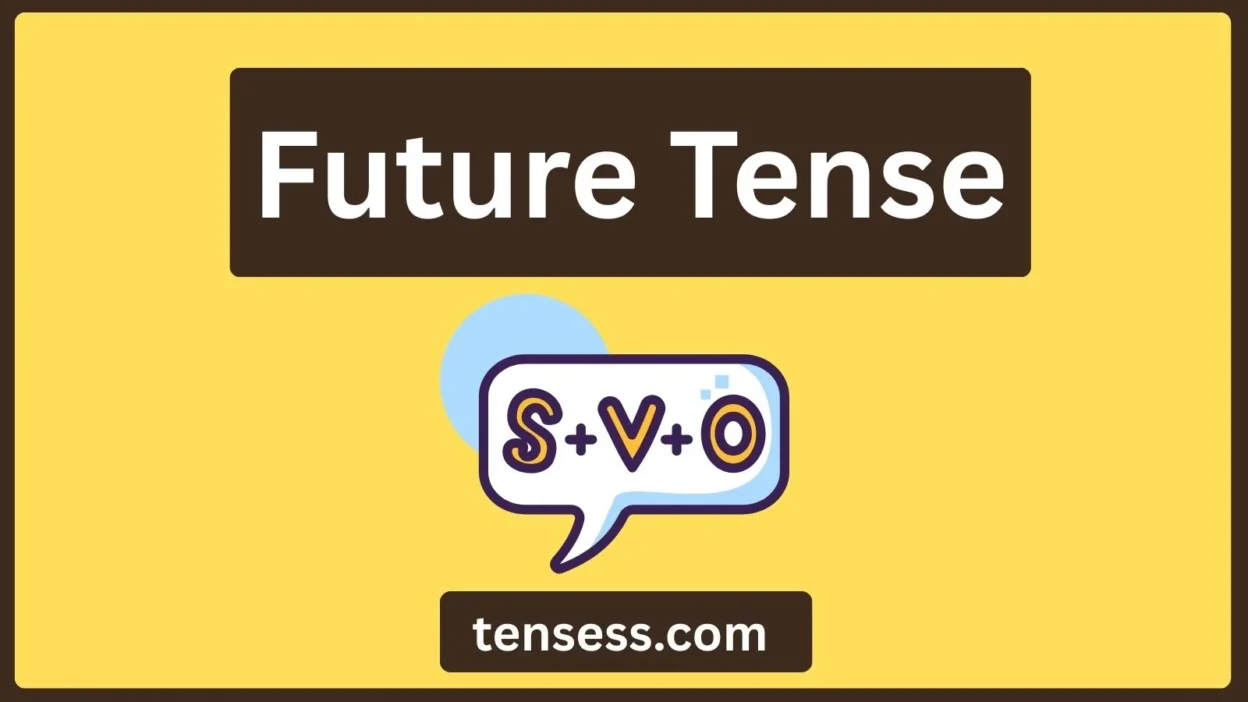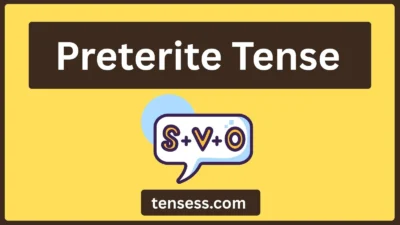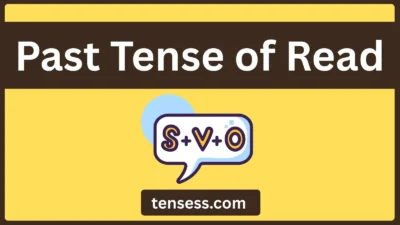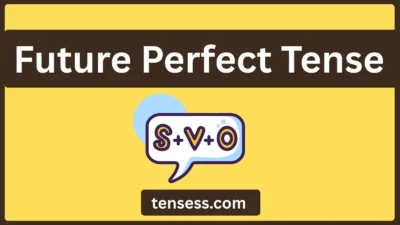The future tense is a vital part of English grammar, allowing us to talk about actions or events that will happen later.
If you’re a student, language learner, writer, or grammar enthusiast, mastering the future tense helps you express plans, predictions, and intentions with clarity.
This article breaks down the future tense using the verb read, explaining its definition, structure, and usage with beginner-friendly examples.
We’ll cover how to form the tense, conjugate verbs, avoid common mistakes, and practice effectively.
With real-life verb tense examples, you’ll see how the future tense fits into everyday communication.
By the end, you’ll feel confident using the future tense correctly and creatively.
Let’s dive into the world of future tense and explore how to use it like a pro!
What Is the Future Tense of “Read”?
The future tense describes actions that will occur after the present moment.
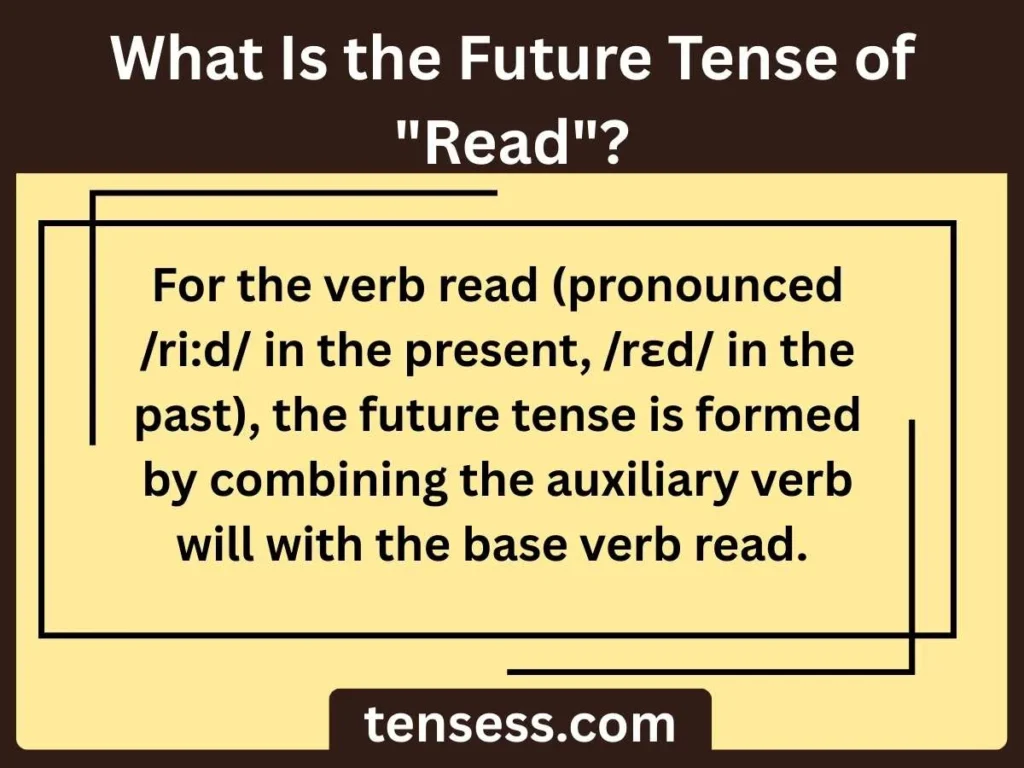
For example, “I will read a book tomorrow” indicates a future action. The future tense is used for predictions, promises, decisions, or scheduled events, making it versatile for expressing what lies ahead.
Recognition of Future Tense
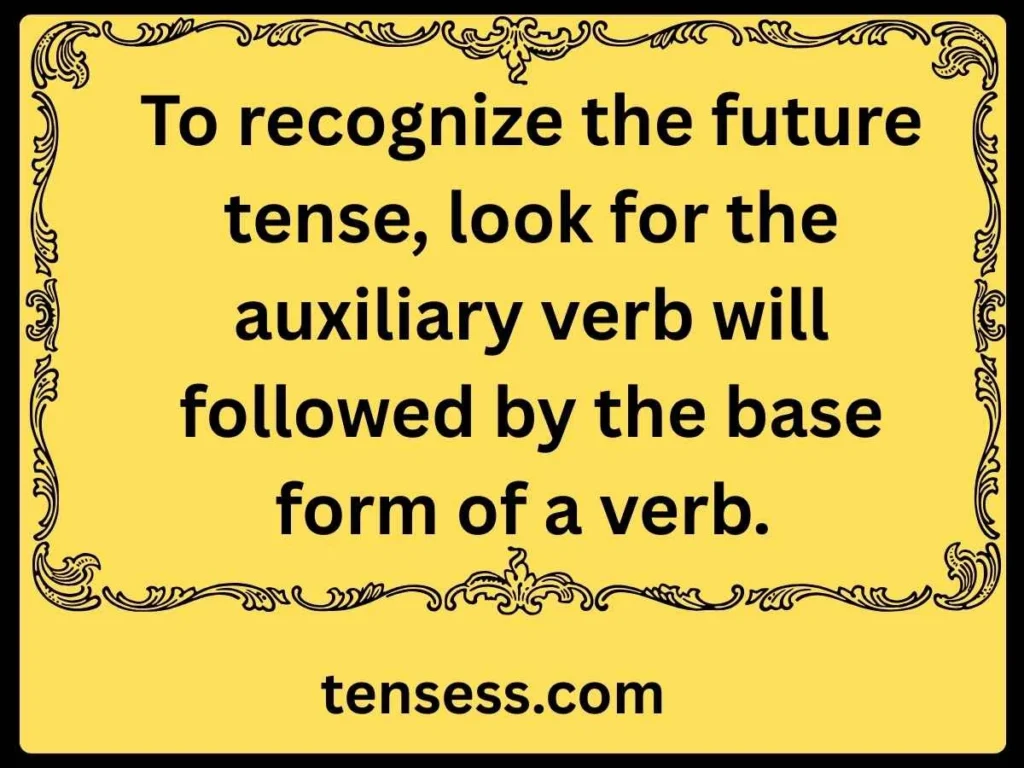
For read, sentences like “She will read the article” or “They will read novels” signal the future tense. Other indicators include time expressions like tomorrow, next week, or in 2026.
Structure of Sentence Future Tense
The basic sentence structure for the future tense is:
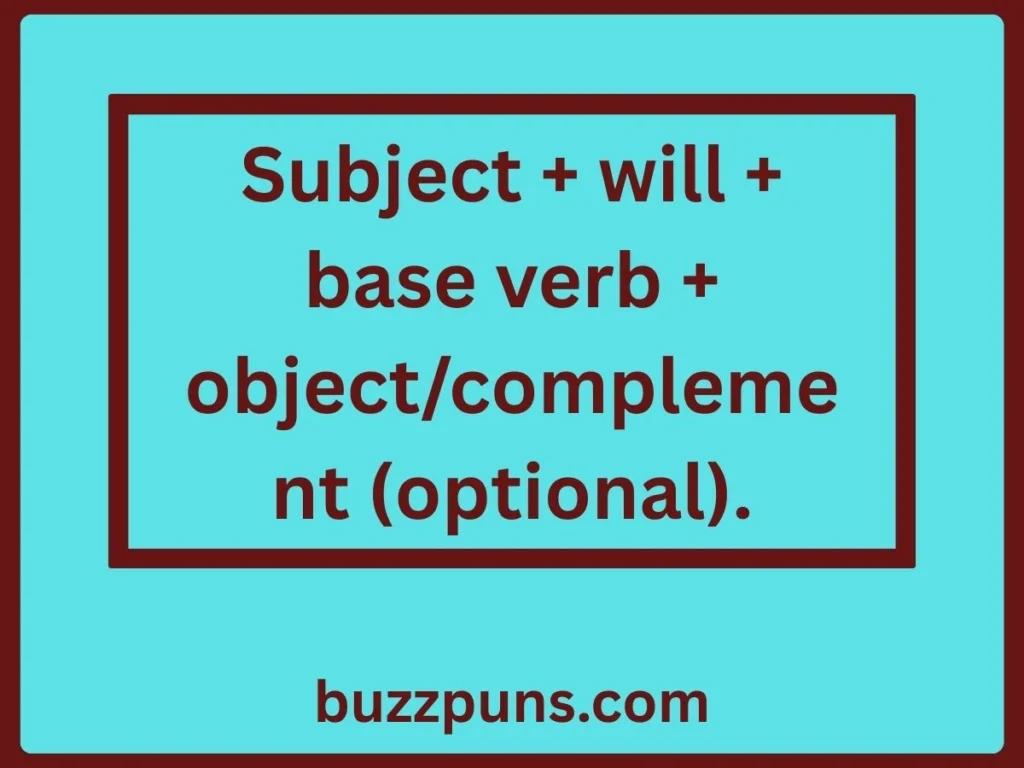
- Example: “He will read the report tomorrow.”
Formation of Future Tense
To form the future tense:
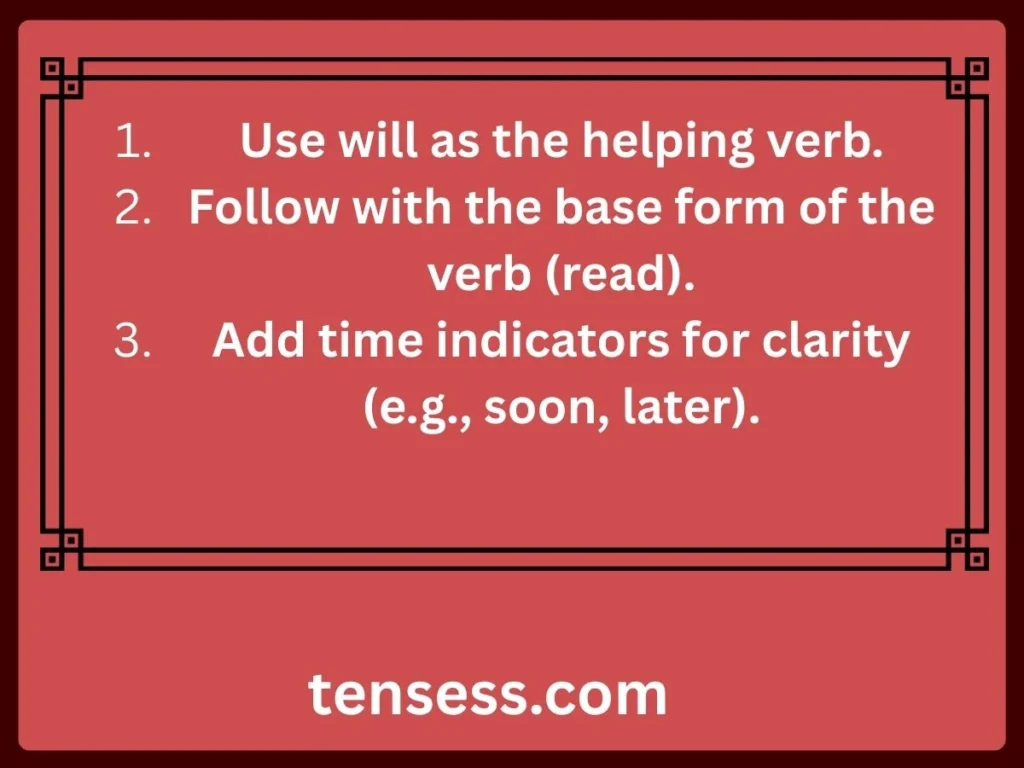
Verbs
The verb read is irregular because its past tense and past participle forms change to read (pronounced /rɛd/). However, in the future tense, it remains in its base form (read, pronounced /ri:d/), making it straightforward to use with will.
Helping Verbs
The primary helping verb for the future tense is will. Alternatively, be going to can be used (e.g., “I am going to read”), though will is more common for read in formal or neutral contexts.
Define the Verb in That Specific Tense
In the future tense, read means to engage with written material at a future time. For example, “I will read the novel next week” implies the action of reading will occur later.
Regular or Irregular Verb
Read is an irregular verb because its past tense and past participle forms differ from the base form. However, in the future tense, this irregularity doesn’t affect conjugation since the base form (read) is used after will.
10 Simple Sentence Examples
- I will read a book tonight.
- She will read the newspaper tomorrow.
- They will read the instructions carefully.
- He will read the email later.
- We will read the reviews before deciding.
- You will read the story to the kids.
- It will read the data automatically.
- John will read the novel next month.
- The team will read the report soon.
- Sarah will read the poem aloud.
How to Conjugate “Future Tense”
Conjugating read in the future tense is simple because it uses will plus the base verb for all subjects. Here’s how it works:
- Use will for all subjects (I, you, he, she, it, we, they).
- Follow with the base verb read.
- No spelling changes occur for read in the future tense.
- Add time expressions for context (e.g., tomorrow).
- Use will not or won’t for negatives (e.g., “I won’t read”).
- Form questions by inverting will and the subject (e.g., “Will you read?”).
- Combine with adverbs for emphasis (e.g., “She will definitely read”).
- Use contractions like I’ll, you’ll, etc., in informal writing.
- Ensure subject-verb agreement in complex sentences.
- Practice with different subjects to master fluency.
Conjugation Table
| Subject | Positive Form | Negative Form | Question Form |
| I | I will read | I will not read | Will I read? |
| You | You will read | You will not read | Will you read? |
| He | He will read | He will not read | Will he read? |
| She | She will read | She will not read | Will she read? |
| It | It will read | It will not read | Will it read? |
| We | We will read | We will not read | Will we read? |
| They | They will read | They will not read | Will they read? |
Spelling Changes or Irregularities
For read, there are no spelling changes in the future tense since the base form is used. The irregularity of read (past tense: read /rɛd/) doesn’t impact future tense conjugation.
Examples of Future Tense Sentences
Here are 15 future tense sentences with read and various subjects:
- I will read a mystery novel this weekend.
- You will read the guide before the trip.
- He will read the contract carefully.
- She will read a bedtime story to her kids.
- It will read the code in seconds.
- We will read the menu before ordering.
- They will read the book for class.
- John will read the article tomorrow.
- Sarah will read the email later today.
- The team will read the proposal next week.
- You (plural) will read the reviews online.
- The system will read the data automatically.
- I will read the instructions before starting.
- She will read the poem at the event.
- We will read the report during the meeting.
Common Mistakes with Future Tense
Here are 10 common errors with the future tense and how to avoid them:
- Using present tense instead: “I read tomorrow” is wrong. Use “I will read tomorrow.”
- Omitting will: “She read the book next week” is incorrect. Add will.
- Confusing with going to: “I am going to read” is valid but less formal than will read.
- Incorrect verb form: “He will reads” is wrong. Use the base verb (read).
- Misplacing time indicators: “Tomorrow I will read book” lacks proper structure. Correct: “Tomorrow, I will read a book.”
- Overusing contractions: Avoid I’ll in formal writing; use I will.
- Ignoring negatives: “I not will read” is incorrect. Use I won’t read.
- Wrong question form: “Read you will?” is wrong. Use Will you read?.
- Mixing tenses: “She will read and finished” is inconsistent. Use will finish.
- Forgetting context: Vague sentences like “I will read” need time indicators (e.g., tomorrow).
Related Verbs and Synonyms for Future Tense
Verbs like study, review, or examine are sometimes confused with read in the future tense. Here are 10 related verbs or synonyms:
- Study: “I will study the notes” vs. “I will read the notes.”
- Review: “She will review the document” vs. “She will read the document.”
- Scan: “He will scan the page” vs. “He will read the page.”
- Browse: “They will browse the magazine” vs. “They will read the magazine.”
- Peruse: “I will peruse the contract” vs. “I will read the contract.”
- Analyze: “We will analyze the report” vs. “We will read the report.”
- Examine: “She will examine the text” vs. “She will read the text.”
- Explore: “They will explore the book” vs. “They will read the book.”
- Inspect: “He will inspect the manual” vs. “He will read the manual.”
- Check: “I will check the email” vs. “I will read the email.”
Sentence Comparisons
- “I will study the chapter” (implies deeper engagement) vs. “I will read the chapter” (general action).
- “She will peruse the menu” (suggests careful reading) vs. “She will read the menu” (neutral).
Tips to Practice Using Future Tense
- Write 5 daily sentences using will read.
- Predict your week using future tense (e.g., “I will read a book on Friday”).
- Read aloud future tense sentences to improve pronunciation.
- Use flashcards with will + verb structures.
- Practice with a partner, creating future tense dialogues.
- Journal about future plans using read.
- Watch English shows and note future tense usage.
- Use apps like Duolingo for verb tense exercises.
- Create a study group to practice future tense sentences.
- Review your writing for correct future tense usage.
Frequently Asked Questions
- What is the future tense? It describes actions that will happen later, using will + base verb.
- How do I form the future tense with read? Use will read (e.g., “I will read”).
- Is read regular or irregular? Read is irregular (past: read /rɛd/), but the future tense uses the base form.
- Can I use “going to” instead of will? Yes, but will is more formal (e.g., “I am going to read” vs. “I will read”).
- What are common time indicators? Words like tomorrow, next week, or soon.
- How do I make negative sentences? Use will not or won’t (e.g., “I won’t read”).
- How do I form questions? Invert will and the subject (e.g., “Will you read?”).
- Why is pronunciation different? Read is /ri:d/ in present/future, /rɛd/ in past.
- Can I combine tenses? Yes, but ensure consistency (e.g., “I will read if I have time”).
- How do I practice? Write sentences, use apps, or speak with others.
Exercises
- Write 5 future tense sentences with read.
- Convert 5 present tense sentences to future tense.
- Create a dialogue using will read.
- Identify future tense in a paragraph.
- Correct 5 incorrect future tense sentences.
- Use read in 3 negative future tense sentences.
- Write 3 future tense questions with read.
- Combine read with time indicators in 5 sentences.
- Translate 5 future tense sentences to another language.
- Summarize a plan using future tense and read.
Quizzes
- What is the future tense form of read? (Answer: will read)
- Is read regular or irregular? (Answer: Irregular)
- Correct this: “I read tomorrow.” (Answer: “I will read tomorrow.”)
- Form a question: ___ you read the book? (Answer: Will you read the book?)
- What’s wrong: “She will reads”? (Answer: Use base verb read)
- Choose the synonym: Study, eat, or sleep? (Answer: Study)
- Make negative: “He will read.” (Answer: “He won’t read.”)
- Add a time indicator: “They will read.” (Answer: e.g., “They will read tomorrow.”)
- Conjugate for “we”: ___ read. (Answer: We will read.)
- Identify the tense: “I will read later.” (Answer: Future tense)
Conclusion
Mastering the future tense is a game-changer for clear communication.
By understanding how to use will read, conjugate verbs, and avoid common mistakes, you can confidently express future plans, predictions, or intentions.
The future tense is simple yet powerful, and with practice, it becomes second nature.
Try writing future tense sentences daily, using read or other verbs, to build fluency.
Apps like grammar checkers or language learning platforms can also help polish your skills.
Start experimenting with the future tense in real-life scenarios—whether planning your week or predicting outcomes.
Share your sentences in the comments or try our exercises and quizzes to test your knowledge.
Keep practicing, and you’ll master the future tense in no time!
